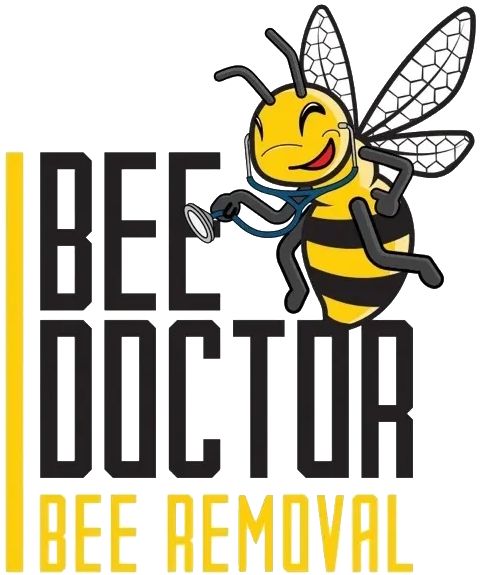Frequently Asked Questions

Honey Bee Removal FAQS
Can you remove bee hives yourself?
Removing a bee hive yourself in Bee Doctor can be quite the adventure, but it comes with some important considerations. While it’s possible to tackle this task on your own, especially if you’re handy and cautious, it’s essential to prioritize safety. Bees can be pretty protective of their homes, and without the right protective gear like a bee suit and gloves, those stings can be more than just a nuisance. Plus, some people can have severe allergic reactions to bee stings. In Southern California, it’s also wise to check local regulations since there may be rules about removing hives, and bees play a crucial role in our ecosystem. If you’re not fully prepared or comfortable with the idea, calling in a professional beekeeper or pest control service can be a great option. They have the expertise to safely relocate the bees, ensuring both your safety and the bees’ well-being. So, while you can try to remove a hive yourself, sometimes it’s best to leave it to the experts to keep everyone buzzing happily.
What types of bees are found in the Bee Doctor area?
In Bee Doctor Bees, you’ll find a delightful variety of bees buzzing around, each playing a unique role in our vibrant ecosystem. One of the most common types is the honeybee, known for their incredible honey production and vital pollination work. You’ll also encounter bumblebees, which are larger and have a fuzzy appearance; they’re fantastic pollinators too, especially for native plants.
Carpenter bees are another type you might see; they resemble bumblebees but are less hairy and often make their nests in wood. In addition to these, there are various species of solitary bees, such as leafcutter bees and mason bees, which are excellent pollinators and tend to be non-aggressive. Each of these bees contributes to the health of our gardens and natural areas, making Southern California a buzzworthy place for bee enthusiasts!
Who can you hire to remove a bee hive?
If you need to remove a honey bee hive in Bee Doctor bee, you have some great options to ensure the bees are relocated safely and humanely. You can hire licensed beekeepers, who have the expertise to handle and relocate bees without harming them. These professionals are passionate about bees and understand their importance to our environment. Additionally, some pest control companies also have beekeeper licenses and are trained to remove bee hives responsibly. It’s crucial to choose professionals who prioritize relocation rather than extermination, as bees play a vital role in pollination and maintaining our ecosystem. By opting for licensed beekeepers or pest control companies with beekeeper licenses, you can ensure that the bees are moved to a safe new home, keeping both your property and our precious bee population in good shape.
What is the difference between honey bees and other stinging insects like wasps?
If you need to remove a honey bee hive in Bee Doctor bee, you have some great options to ensure the bees are relocated safely and humanely. You can hire licensed beekeepers, who have the expertise to handle and relocate bees without harming them. These professionals are passionate about bees and understand their importance to our environment. Additionally, some pest control companies also have beekeeper licenses and are trained to remove bee hives responsibly. It’s crucial to choose professionals who prioritize relocation rather than extermination, as bees play a vital role in pollination and maintaining our ecosystem. By opting for licensed beekeepers or pest control companies with beekeeper licenses, you can ensure that the bees are moved to a safe new home, keeping both your property and our precious bee population in good shape.
What happens to the bees after hive removal?
If you need to remove a honey bee hive in Bee Doctor bee, you have some great options to ensure the bees are relocated safely and humanely. You can hire licensed beekeepers, who have the expertise to handle and relocate bees without harming them. These professionals are passionate about bees and understand their importance to our environment. Additionally, some pest control companies also have beekeeper licenses and are trained to remove bee hives responsibly. It’s crucial to choose professionals who prioritize relocation rather than extermination, as bees play a vital role in pollination and maintaining our ecosystem. By opting for licensed beekeepers or pest control companies with beekeeper licenses, you can ensure that the bees are moved to a safe new home, keeping both your property and our precious bee population in good shape.
Will removing a hive prevent bees from returning?
If you need to remove a honey bee hive in Bee Doctor bee, you have some great options to ensure the bees are relocated safely and humanely. You can hire licensed beekeepers, who have the expertise to handle and relocate bees without harming them. These professionals are passionate about bees and understand their importance to our environment. Additionally, some pest control companies also have beekeeper licenses and are trained to remove bee hives responsibly. It’s crucial to choose professionals who prioritize relocation rather than extermination, as bees play a vital role in pollination and maintaining our ecosystem. By opting for licensed beekeepers or pest control companies with beekeeper licenses, you can ensure that the bees are moved to a safe new home, keeping both your property and our precious bee population in good shape.
What kind of bees are found in Southern California?
Southern California is home to a wide variety of bee species, each playing a unique role in the local ecosystem. Here are some of the most commonly encountered bees in the region:
1. Western Honey Bee (Apis mellifera)
-
Overview: These are the classic honey-producing bees most people recognize. While not native to California, they are vital pollinators for both wild plants and agricultural crops.
-
Behavior: Social, live in large colonies, and generally non-aggressive unless threatened.
-
Note: A more defensive hybrid—Africanized Honey Bees (also called “killer bees”)—can also be found in Southern California, especially in warmer areas.
2. Bumble Bees (Genus: Bombus)
-
Overview: Large, fuzzy bees often seen hovering around flowers. Native to the region and important for pollinating native plants.
-
Behavior: Social, ground nesters, typically docile unless provoked.
3. Carpenter Bees (Genus: Xylocopa)
-
Overview: Big, black, or metallic bees that bore into wood to lay their eggs. They are excellent pollinators but can become a nuisance around wooden structures.
-
Behavior: Solitary; females can sting, but generally non-aggressive.
4. Sweat Bees (Family: Halictidae)
-
Overview: Small, often metallic green or blue bees attracted to human sweat for its salt. They are common but often go unnoticed.
-
Behavior: Solitary or semi-social; rarely sting unless handled.
5. Leafcutter Bees (Genus: Megachile)
-
Overview: Known for cutting circular pieces from leaves to build their nests. They are efficient pollinators and are commonly seen in gardens.
-
Behavior: Solitary; do not pose a threat to humans.
6. Mining Bees (Family: Andrenidae)
-
Overview: Ground-nesting bees often seen in early spring. They are harmless and help pollinate native plants.
-
Behavior: Solitary; gentle and non-aggressive.
Are bees in Southern California dangerous?
Most bees in Southern California are non-aggressive and will only sting when threatened. However, Africanized Honey Bees, which are more defensive than European honey bees, do exist in some areas. While rare, their stings can be dangerous in large numbers. It’s important to stay calm around any swarm or nest and call a professional for removal if needed.
Who can you hire to remove a beehive?
You can hire Bee Doctor to safely and professionally remove a beehive.
🐝 Bee Doctor specializes in humane bee removal and relocation services across Southern California. Whether the hive is in your attic, tree, wall, or under your eaves, their experienced team knows how to handle the situation without harming the bees or your property.
They’re fully equipped to:
Remove both exposed and hidden hives
Handle aggressive swarms, including Africanized bees
Relocate bees to protected apiaries
Provide bee-proofing to prevent future infestations
Call Bee Doctor when the buzz becomes a problem — they’re your hive-to-home solution.
Would you like this turned into a short web or social media post too?
What is the difference between honeybees and natives?
Native bees are primarily solitary, with some species of bees and wasp can have a hundred individuals if the forage is good. Honeybees, a small
Colony would be 5-10,000 individuals, upwards of 100,000 for the more established and healthy hives
What happens to the bees after removal?
They are professionally maintained by Beedoctors journeyman beekeepers James West and Brandon Teller, we send the bees to almonds in early February, bring them home in March and spread them out in the fields of SoCal for honey production.
Will removing bees prevent them from coming back?
No, utilizing bee doctors exclusion and backfilling techniques will keep bees from returning.

 (951) 322-5457
(951) 322-5457